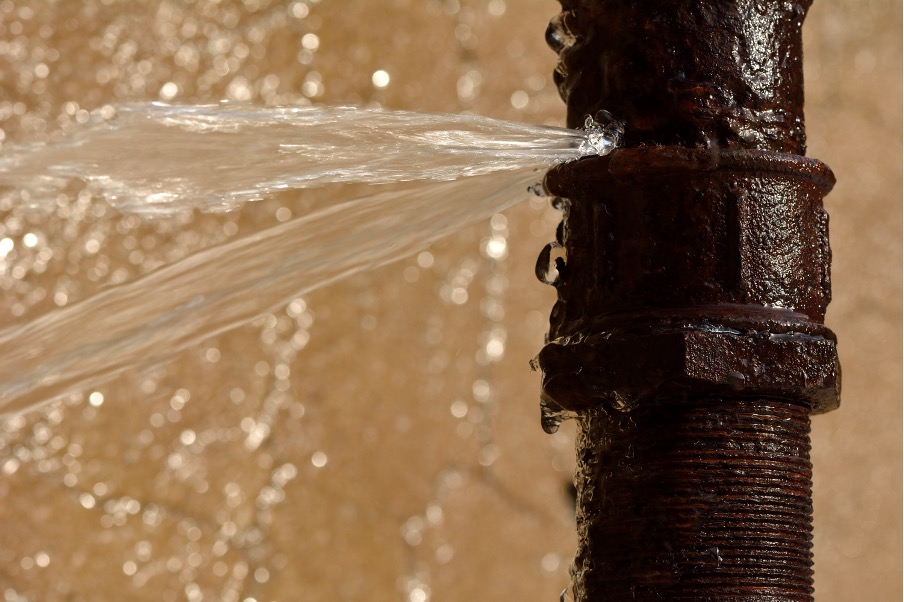How to Examine If Your House Has a Hidden Leakage
How to Examine If Your House Has a Hidden Leakage
Blog Article
They are making a few great observations related to Leaking water lines in general in this great article on the next paragraphs.

Early detection of dripping water lines can mitigate a potential catastrophe. Some little water leakages might not be noticeable.
1. Analyze the Water Meter
Checking it is a surefire method that aids you uncover leakages. If it moves, that suggests a fast-moving leak. This implies you may have a slow-moving leak that might also be below ground.
2. Inspect Water Intake
Analyze your water expenses and also track your water consumption. As the one paying it, you must see if there are any kind of inconsistencies. If you detect sudden changes, regardless of your usage being the same, it implies that you have leakages in your plumbing system. Remember, your water bill ought to fall under the very same array every month. An abrupt spike in your costs indicates a fast-moving leakage.
A steady rise every month, even with the exact same practices, reveals you have a slow leak that's additionally slowly escalating. Call a plumber to thoroughly examine your residential property, especially if you really feel a warm area on your flooring with piping underneath.
3. Do a Food Coloring Test
When it comes to water consumption, 30% comes from bathrooms. If the color in some way infiltrates your dish during that time without flushing, there's a leakage in between the storage tank as well as bowl.
4. Asses Exterior Lines
Don't neglect to examine your exterior water lines as well. Test spigots by attaching a yard hose. Must water permeate out of the connection, you have a loose rubber gasket. Change this and also ensure all links are tight. It will aid obtain it skillfully checked out and preserved annually if you have actually got a sprinkler system. One small leak can throw away tons of water and spike your water expense.
5. Evaluate the circumstance and also inspect
Homeowners ought to make it a routine to examine under the sink counters as well as even inside cabinets for any kind of bad odor or mold and mildew development. These 2 red flags indicate a leakage so punctual focus is needed. Doing regular evaluations, even bi-annually, can save you from a major issue.
Check for stainings and damaging as many home appliances and pipes have a life span. If you think dripping water lines in your plumbing system, do not wait for it to escalate.
Early discovery of dripping water lines can minimize a potential calamity. Some small water leaks might not be noticeable. Inspecting it is a proven way that assists you discover leaks. One small leakage can lose heaps of water as well as surge your water bill.
If you believe leaking water lines in your plumbing system, do not wait for it to rise.
5 Signs that Your Home Has a Hidden Leak
Your water bill is unusually high without explanation
Generally, your water bill tends to stay consistent throughout the year as long as the same number of people live in your household year round. The bill might be higher during certain times of the year, such as summer, when your lawn may require more watering than it does in cooler months. However, if you notice a rise in your water bill that you can’t explain, it’s an indicator that there’s a hidden leak somewhere in your home.
You hear running water
One of the biggest signs that you have a water leak is the sound of rushing water when no plumbing fixtures are on and when no water-using appliances are running. If you hear running water in your walls when no water is being used anywhere in your home, locate your home’s main water shut-off valve, shut off your water supply, and contact a plumber at once.
Your home smells musty
Hidden leaks often occur in dark spaces, such as behind walls or under carpeting. Incidentally, darkness and moisture can create an ideal breeding environment for mold or mildew. If you start to smell mildew or the scent of rotting wood or stagnant water around your home, it’s a fair bet that a leak is the culprit.
You find wet spots around your home
The wet spots usually show up as moist areas in your carpeting. If your home has a basement level, puddles on the floor could indicate a slab leak. Outside, unexplainable puddles or lush, green patches in your yard often mean that there’s a leak in your sewer line or main water line.
You have stains, bubbles, or condensation on your walls/ceiling
Stains or condensation on your walls or ceiling are both major signs of a hidden leak. Also, drywall (AKA. sheetrock) is very absorbent, and as it takes on more water from a leak behind a wall, it will start to bubble, swell, or warp. If you see this happening in your home, don’t wait to contact a plumber before the water damage spreads.
https://www.ezflowplumbingaz.com/blog/2019/june/5-signs-that-your-home-has-a-hidden-leak/

As a keen person who reads about Locating water leaks, I think sharing that piece of content was worth the trouble. Are you aware of another person who is curious about the subject? Feel free to promote it. I recognize the value of reading our article about Detecting hidden plumbing leaks.
Report this page